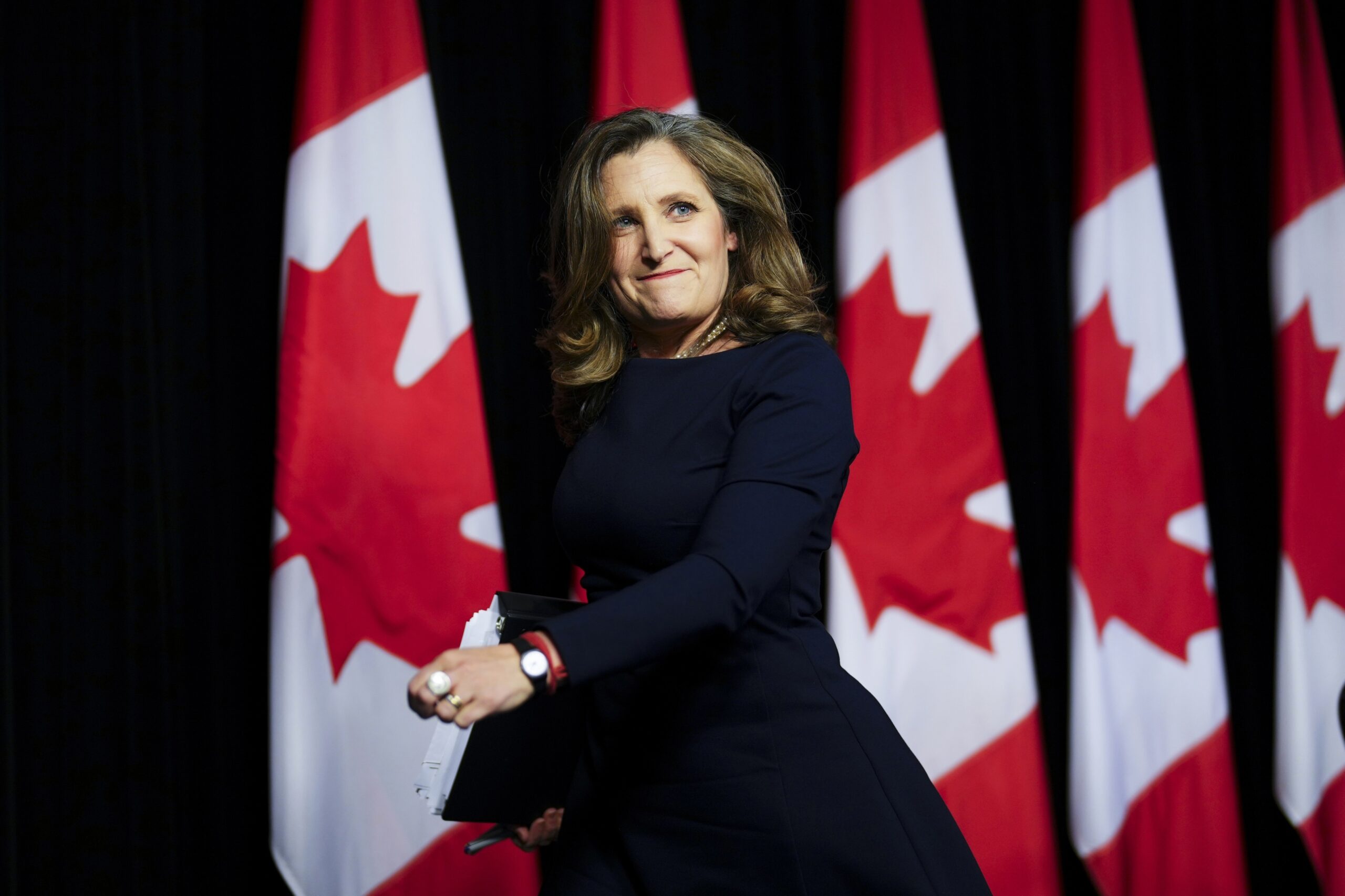Canada rolls out digital services tax, faces US pushback

FILE – Deputy Prime Minister and Minister of Finance Chrystia Freeland holds a press conference in Ottawa, Ontario, on Tuesday, April 16, 2024. (Sean Kilpatrick/The Canadian Press via AP, File)
Ottawa, Canada — Canada’s deputy prime minister on Thursday defended a digital services tax that was quietly rolled out last week, despite pushback from business groups and threats of US reprisals.
The three-percent tax on large or multinational companies such as Alphabet, Amazon and Meta that provide digital services to Canadians, was forecast in the 2024 federal budget to bring in Can$5.9 billion (US$4.2 billion) over five years.
It was enacted by an order in council on June 28.
READ: Justin Trudeau’s gov’t raises taxes on wealthiest Canadians
Speaking publicly about it for the first time since the rollout, Deputy Prime Minister Chrystia Freeland said Canada was following the lead of other G7 nations such as Britain, France and Italy.
Ottawa had proposed the tax in 2019 but held off implementing it to allow for the conclusion of talks on a global treaty on taxing multinationals.
Those negotiations dragged on without a deal, and “it’s simply not reasonable, not fair for Canada to indefinitely put our own measures on hold,” Freeland said.
“Canada’s preference is and always has been a multilateral solution on the digital service tax,” she added, noting that bilateral talks with Washington continue.
READ: Canada to consider imposing surtax on Chinese electric vehicles
The US Computer and Communications Industry Association, which represents big tech companies like Amazon, Apple and Uber, and 10 other trade associations last month called on President Joe Biden to challenge the “burdensome and discriminatory” tax under the US-Mexico-Canada Free Trade Agreement (USMCA).
In a letter to Biden, they warned that the tax would disproportionally hit US companies and would have “a chilling effect” on US investment in Canada.
They also lamented as unprecedented Ottawa making it retroactive to 2022.
US Ambassador to Canada David Cohen was quoted by public broadcaster CBC as saying the United States is “open to using all available tools” to address the those concerns.